Political systems of Kazakhstan USA and UK Kazakhstan

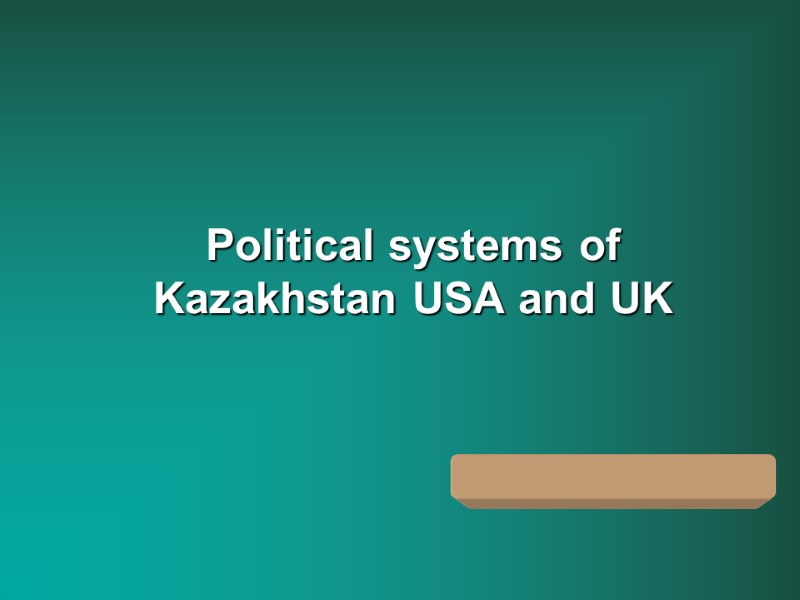
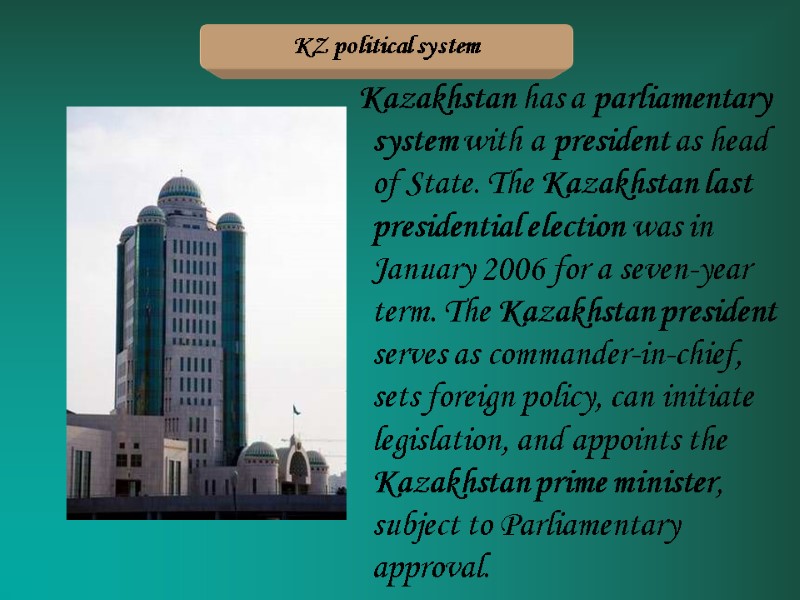
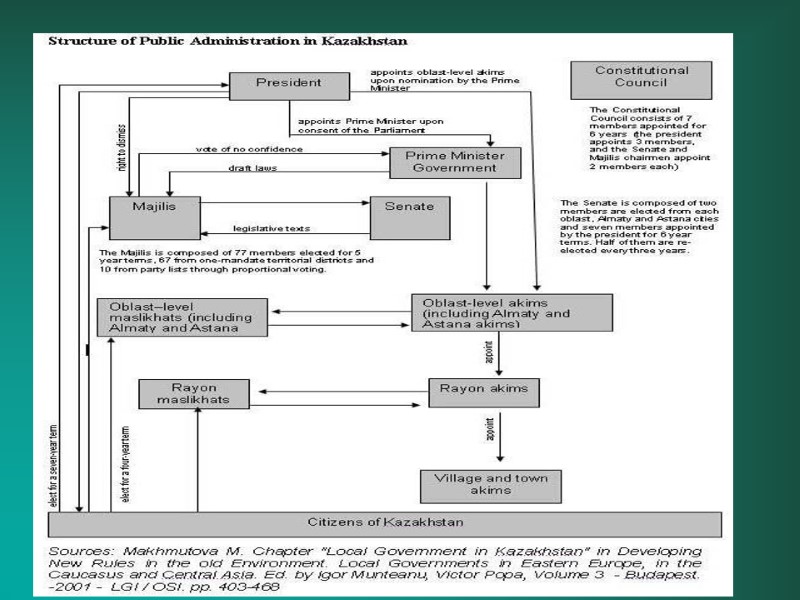
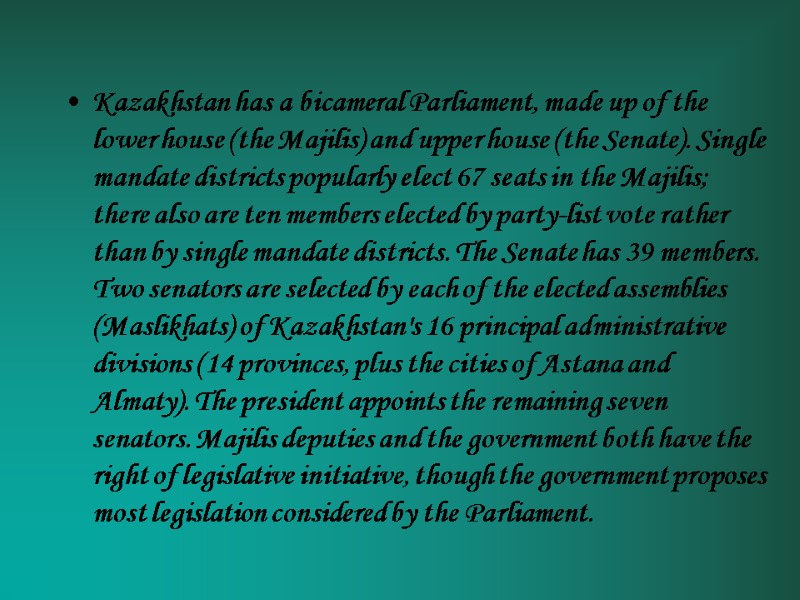
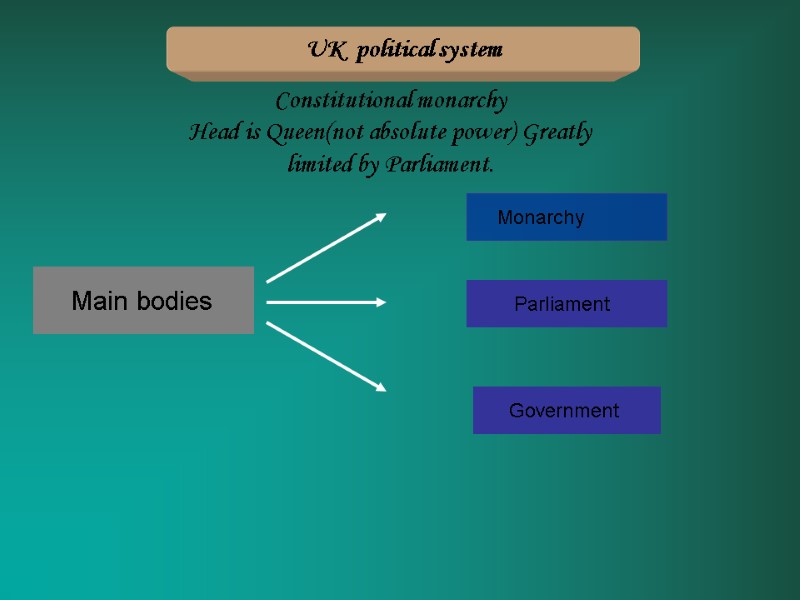
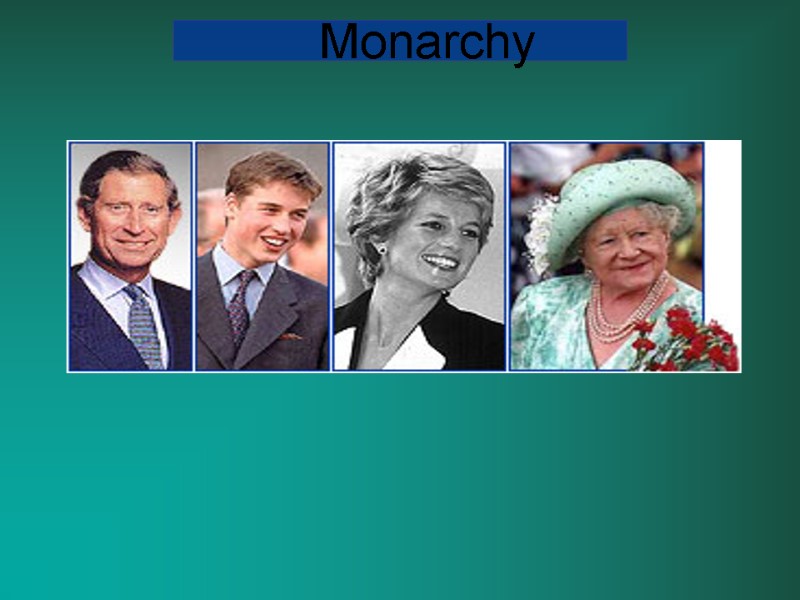
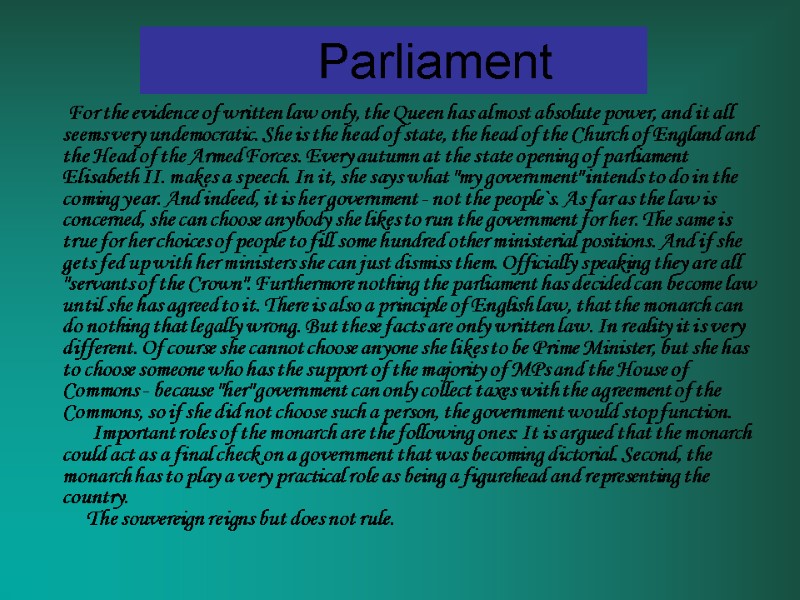
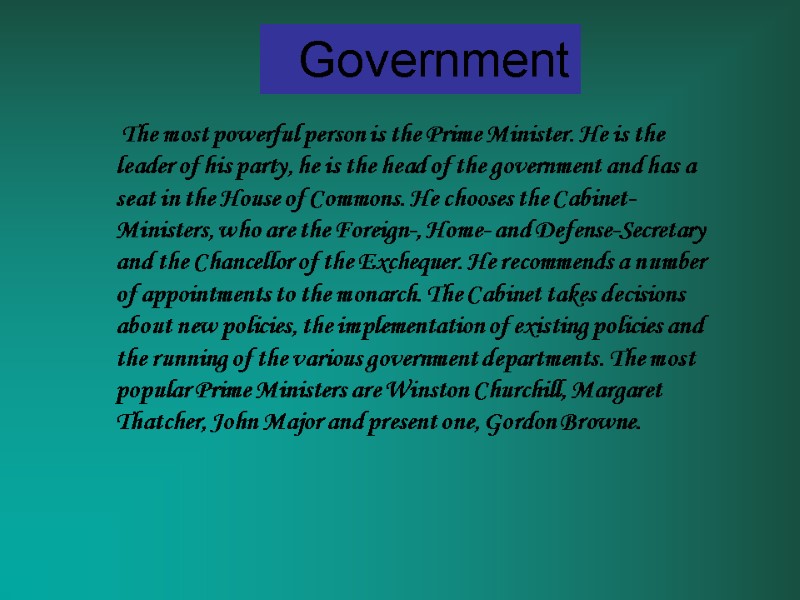
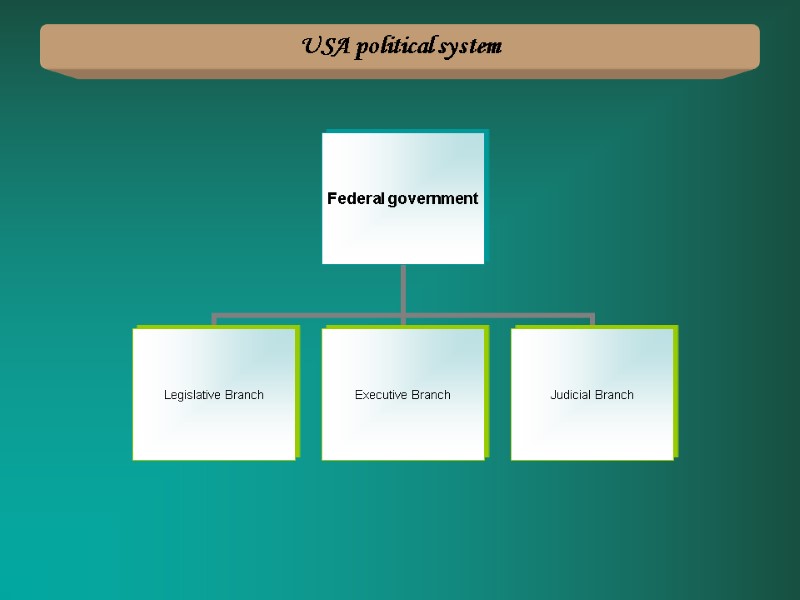
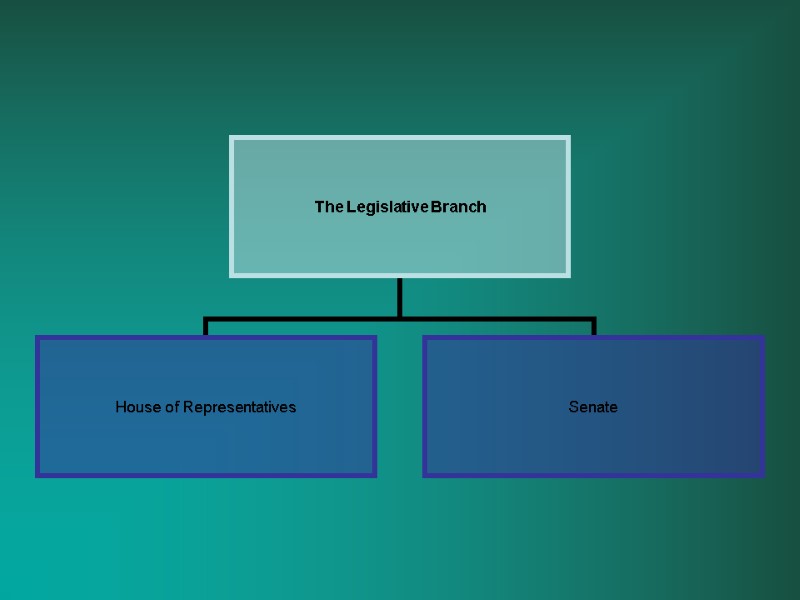
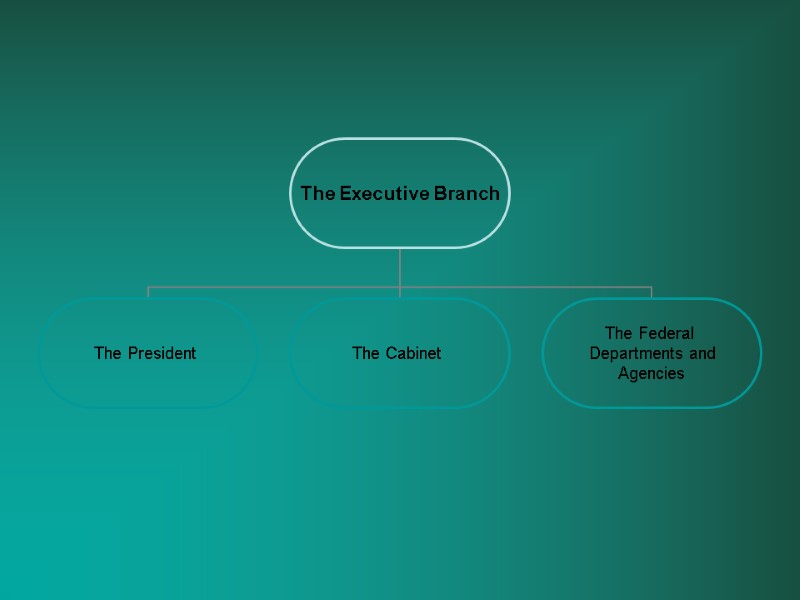
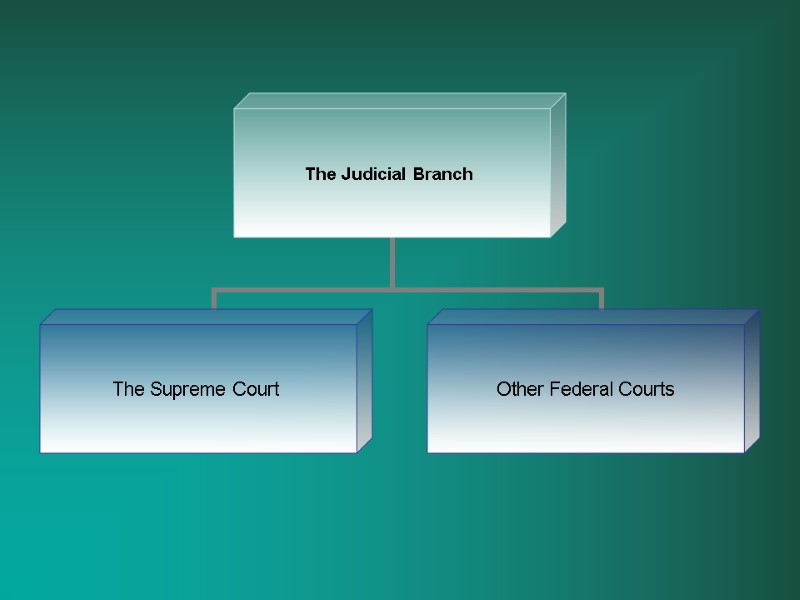
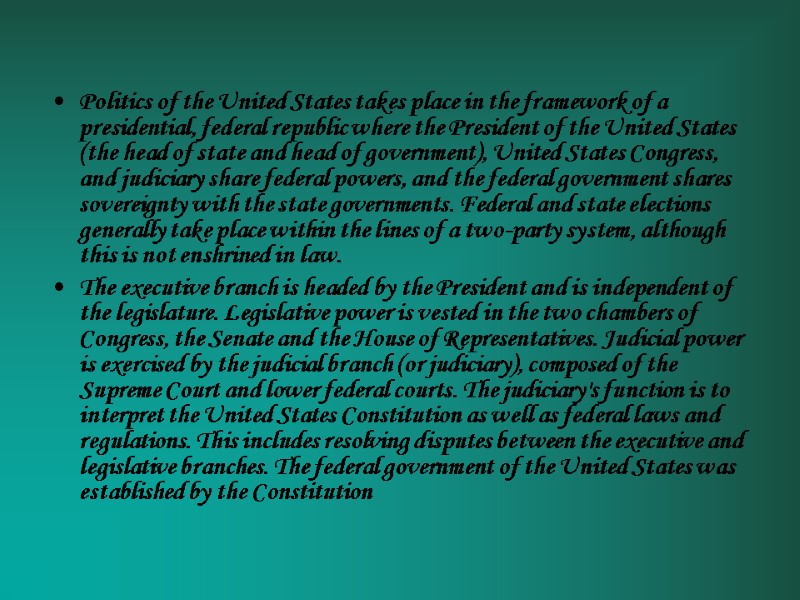
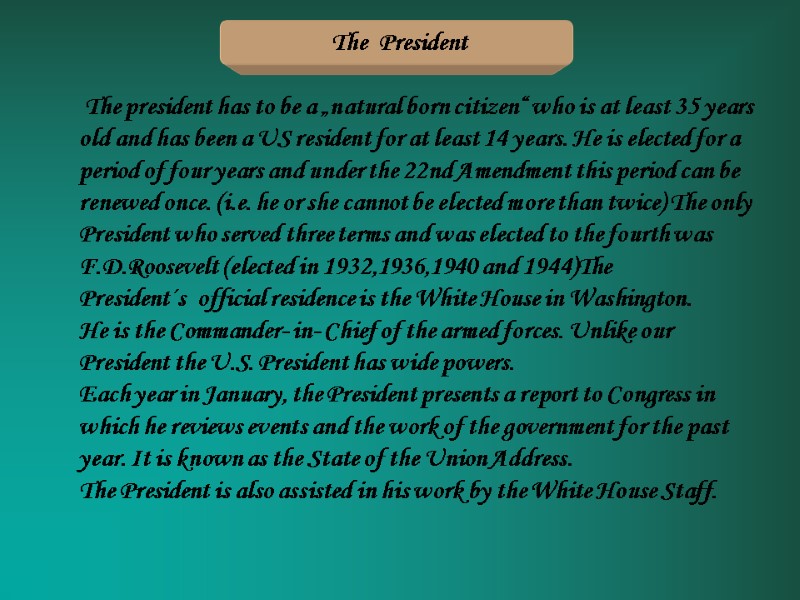
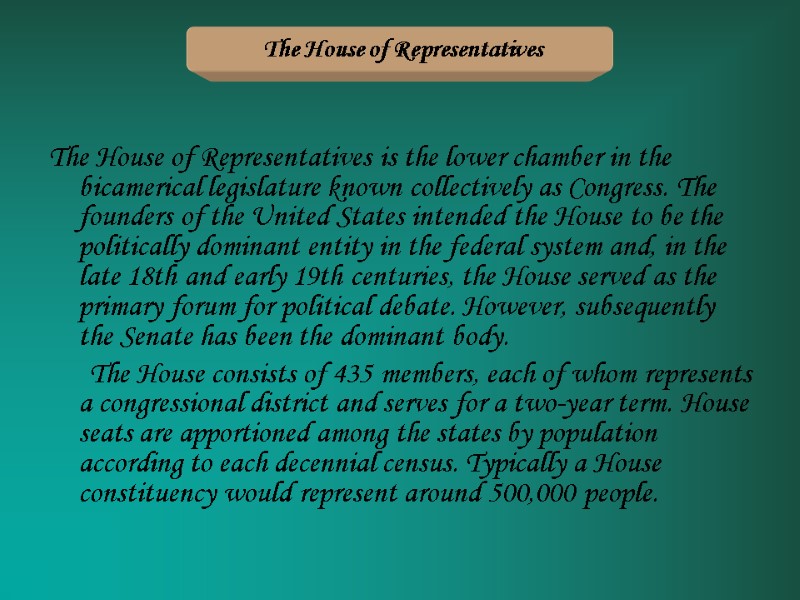
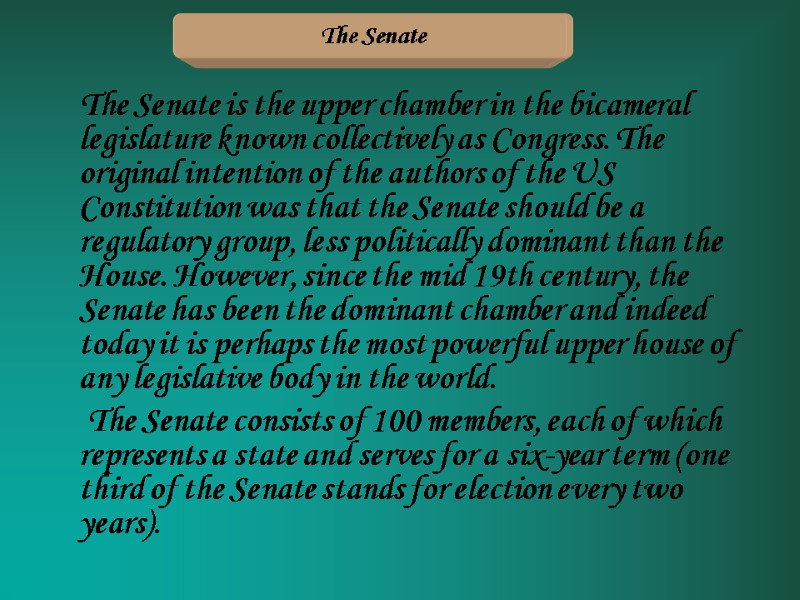
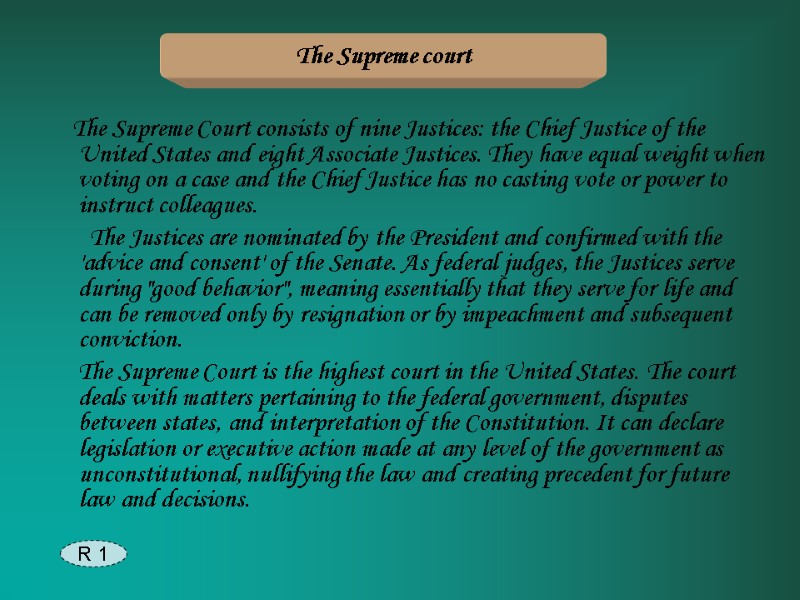
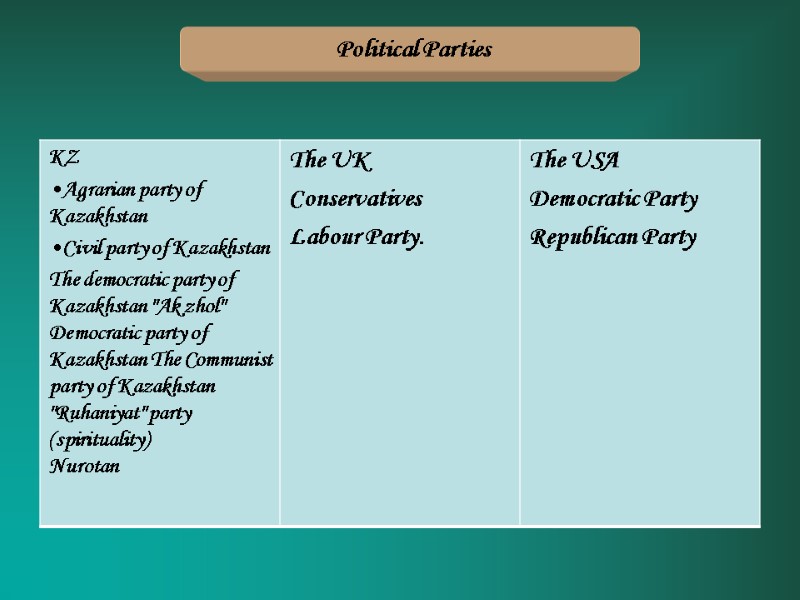
9734-political_system.ppt
- Количество слайдов: 18
 Political systems of Kazakhstan USA and UK
Political systems of Kazakhstan USA and UK
 Kazakhstan has a parliamentary system with a president as head of State. The Kazakhstan last presidential election was in January 2006 for a seven-year term. The Kazakhstan president serves as commander-in-chief, sets foreign policy, can initiate legislation, and appoints the Kazakhstan prime minister, subject to Parliamentary approval. KZ political system
Kazakhstan has a parliamentary system with a president as head of State. The Kazakhstan last presidential election was in January 2006 for a seven-year term. The Kazakhstan president serves as commander-in-chief, sets foreign policy, can initiate legislation, and appoints the Kazakhstan prime minister, subject to Parliamentary approval. KZ political system

 Kazakhstan has a bicameral Parliament, made up of the lower house (the Majilis) and upper house (the Senate). Single mandate districts popularly elect 67 seats in the Majilis; there also are ten members elected by party-list vote rather than by single mandate districts. The Senate has 39 members. Two senators are selected by each of the elected assemblies (Maslikhats) of Kazakhstan's 16 principal administrative divisions (14 provinces, plus the cities of Astana and Almaty). The president appoints the remaining seven senators. Majilis deputies and the government both have the right of legislative initiative, though the government proposes most legislation considered by the Parliament.
Kazakhstan has a bicameral Parliament, made up of the lower house (the Majilis) and upper house (the Senate). Single mandate districts popularly elect 67 seats in the Majilis; there also are ten members elected by party-list vote rather than by single mandate districts. The Senate has 39 members. Two senators are selected by each of the elected assemblies (Maslikhats) of Kazakhstan's 16 principal administrative divisions (14 provinces, plus the cities of Astana and Almaty). The president appoints the remaining seven senators. Majilis deputies and the government both have the right of legislative initiative, though the government proposes most legislation considered by the Parliament.
 Government Parliament Monarchy Main bodies UK political system Constitutional monarchy Head is Queen(not absolute power) Greatly limited by Parliament.
Government Parliament Monarchy Main bodies UK political system Constitutional monarchy Head is Queen(not absolute power) Greatly limited by Parliament.
 Monarchy
Monarchy
 Parliament For the evidence of written law only, the Queen has almost absolute power, and it all seems very undemocratic. She is the head of state, the head of the Church of England and the Head of the Armed Forces. Every autumn at the state opening of parliament Elisabeth II. makes a speech. In it, she says what "my government" intends to do in the coming year. And indeed, it is her government - not the people`s. As far as the law is concerned, she can choose anybody she likes to run the government for her. The same is true for her choices of people to fill some hundred other ministerial positions. And if she gets fed up with her ministers she can just dismiss them. Officially speaking they are all "servants of the Crown". Furthermore nothing the parliament has decided can become law until she has agreed to it. There is also a principle of English law, that the monarch can do nothing that legally wrong. But these facts are only written law. In reality it is very different. Of course she cannot choose anyone she likes to be Prime Minister, but she has to choose someone who has the support of the majority of MPs and the House of Commons - because "her" government can only collect taxes with the agreement of the Commons, so if she did not choose such a person, the government would stop function. Important roles of the monarch are the following ones: It is argued that the monarch could act as a final check on a government that was becoming dictorial. Second, the monarch has to play a very practical role as being a figurehead and representing the country. The souvereign reigns but does not rule.
Parliament For the evidence of written law only, the Queen has almost absolute power, and it all seems very undemocratic. She is the head of state, the head of the Church of England and the Head of the Armed Forces. Every autumn at the state opening of parliament Elisabeth II. makes a speech. In it, she says what "my government" intends to do in the coming year. And indeed, it is her government - not the people`s. As far as the law is concerned, she can choose anybody she likes to run the government for her. The same is true for her choices of people to fill some hundred other ministerial positions. And if she gets fed up with her ministers she can just dismiss them. Officially speaking they are all "servants of the Crown". Furthermore nothing the parliament has decided can become law until she has agreed to it. There is also a principle of English law, that the monarch can do nothing that legally wrong. But these facts are only written law. In reality it is very different. Of course she cannot choose anyone she likes to be Prime Minister, but she has to choose someone who has the support of the majority of MPs and the House of Commons - because "her" government can only collect taxes with the agreement of the Commons, so if she did not choose such a person, the government would stop function. Important roles of the monarch are the following ones: It is argued that the monarch could act as a final check on a government that was becoming dictorial. Second, the monarch has to play a very practical role as being a figurehead and representing the country. The souvereign reigns but does not rule.
 Government The most powerful person is the Prime Minister. He is the leader of his party, he is the head of the government and has a seat in the House of Commons. He chooses the Cabinet-Ministers, who are the Foreign-, Home- and Defense-Secretary and the Chancellor of the Exchequer. He recommends a number of appointments to the monarch. The Cabinet takes decisions about new policies, the implementation of existing policies and the running of the various government departments. The most popular Prime Ministers are Winston Churchill, Margaret Thatcher, John Major and present one, Gordon Browne.
Government The most powerful person is the Prime Minister. He is the leader of his party, he is the head of the government and has a seat in the House of Commons. He chooses the Cabinet-Ministers, who are the Foreign-, Home- and Defense-Secretary and the Chancellor of the Exchequer. He recommends a number of appointments to the monarch. The Cabinet takes decisions about new policies, the implementation of existing policies and the running of the various government departments. The most popular Prime Ministers are Winston Churchill, Margaret Thatcher, John Major and present one, Gordon Browne.
 USA political system
USA political system



 Politics of the United States takes place in the framework of a presidential, federal republic where the President of the United States (the head of state and head of government), United States Congress, and judiciary share federal powers, and the federal government shares sovereignty with the state governments. Federal and state elections generally take place within the lines of a two-party system, although this is not enshrined in law. The executive branch is headed by the President and is independent of the legislature. Legislative power is vested in the two chambers of Congress, the Senate and the House of Representatives. Judicial power is exercised by the judicial branch (or judiciary), composed of the Supreme Court and lower federal courts. The judiciary's function is to interpret the United States Constitution as well as federal laws and regulations. This includes resolving disputes between the executive and legislative branches. The federal government of the United States was established by the Constitution
Politics of the United States takes place in the framework of a presidential, federal republic where the President of the United States (the head of state and head of government), United States Congress, and judiciary share federal powers, and the federal government shares sovereignty with the state governments. Federal and state elections generally take place within the lines of a two-party system, although this is not enshrined in law. The executive branch is headed by the President and is independent of the legislature. Legislative power is vested in the two chambers of Congress, the Senate and the House of Representatives. Judicial power is exercised by the judicial branch (or judiciary), composed of the Supreme Court and lower federal courts. The judiciary's function is to interpret the United States Constitution as well as federal laws and regulations. This includes resolving disputes between the executive and legislative branches. The federal government of the United States was established by the Constitution
 The president has to be a „natural born citizen“ who is at least 35 years old and has been a US resident for at least 14 years. He is elected for a period of four years and under the 22nd Amendment this period can be renewed once. (i.e. he or she cannot be elected more than twice) The only President who served three terms and was elected to the fourth was F.D.Roosevelt (elected in 1932,1936,1940 and 1944)The President´s official residence is the White House in Washington. He is the Commander- in- Chief of the armed forces. Unlike our President the U.S. President has wide powers. Each year in January, the President presents a report to Congress in which he reviews events and the work of the government for the past year. It is known as the State of the Union Address. The President is also assisted in his work by the White House Staff. The President
The president has to be a „natural born citizen“ who is at least 35 years old and has been a US resident for at least 14 years. He is elected for a period of four years and under the 22nd Amendment this period can be renewed once. (i.e. he or she cannot be elected more than twice) The only President who served three terms and was elected to the fourth was F.D.Roosevelt (elected in 1932,1936,1940 and 1944)The President´s official residence is the White House in Washington. He is the Commander- in- Chief of the armed forces. Unlike our President the U.S. President has wide powers. Each year in January, the President presents a report to Congress in which he reviews events and the work of the government for the past year. It is known as the State of the Union Address. The President is also assisted in his work by the White House Staff. The President
 The House of Representatives is the lower chamber in the bicamerical legislature known collectively as Congress. The founders of the United States intended the House to be the politically dominant entity in the federal system and, in the late 18th and early 19th centuries, the House served as the primary forum for political debate. However, subsequently the Senate has been the dominant body. The House consists of 435 members, each of whom represents a congressional district and serves for a two-year term. House seats are apportioned among the states by population according to each decennial census. Typically a House constituency would represent around 500,000 people. The House of Representatives
The House of Representatives is the lower chamber in the bicamerical legislature known collectively as Congress. The founders of the United States intended the House to be the politically dominant entity in the federal system and, in the late 18th and early 19th centuries, the House served as the primary forum for political debate. However, subsequently the Senate has been the dominant body. The House consists of 435 members, each of whom represents a congressional district and serves for a two-year term. House seats are apportioned among the states by population according to each decennial census. Typically a House constituency would represent around 500,000 people. The House of Representatives
 The Senate is the upper chamber in the bicameral legislature known collectively as Congress. The original intention of the authors of the US Constitution was that the Senate should be a regulatory group, less politically dominant than the House. However, since the mid 19th century, the Senate has been the dominant chamber and indeed today it is perhaps the most powerful upper house of any legislative body in the world. The Senate consists of 100 members, each of which represents a state and serves for a six-year term (one third of the Senate stands for election every two years). The Senate The Senate
The Senate is the upper chamber in the bicameral legislature known collectively as Congress. The original intention of the authors of the US Constitution was that the Senate should be a regulatory group, less politically dominant than the House. However, since the mid 19th century, the Senate has been the dominant chamber and indeed today it is perhaps the most powerful upper house of any legislative body in the world. The Senate consists of 100 members, each of which represents a state and serves for a six-year term (one third of the Senate stands for election every two years). The Senate The Senate
 The Supreme Court consists of nine Justices: the Chief Justice of the United States and eight Associate Justices. They have equal weight when voting on a case and the Chief Justice has no casting vote or power to instruct colleagues. The Justices are nominated by the President and confirmed with the 'advice and consent' of the Senate. As federal judges, the Justices serve during "good behavior", meaning essentially that they serve for life and can be removed only by resignation or by impeachment and subsequent conviction. The Supreme Court is the highest court in the United States. The court deals with matters pertaining to the federal government, disputes between states, and interpretation of the Constitution. It can declare legislation or executive action made at any level of the government as unconstitutional, nullifying the law and creating precedent for future law and decisions. The Supreme court R 1
The Supreme Court consists of nine Justices: the Chief Justice of the United States and eight Associate Justices. They have equal weight when voting on a case and the Chief Justice has no casting vote or power to instruct colleagues. The Justices are nominated by the President and confirmed with the 'advice and consent' of the Senate. As federal judges, the Justices serve during "good behavior", meaning essentially that they serve for life and can be removed only by resignation or by impeachment and subsequent conviction. The Supreme Court is the highest court in the United States. The court deals with matters pertaining to the federal government, disputes between states, and interpretation of the Constitution. It can declare legislation or executive action made at any level of the government as unconstitutional, nullifying the law and creating precedent for future law and decisions. The Supreme court R 1
 Political Parties
Political Parties

